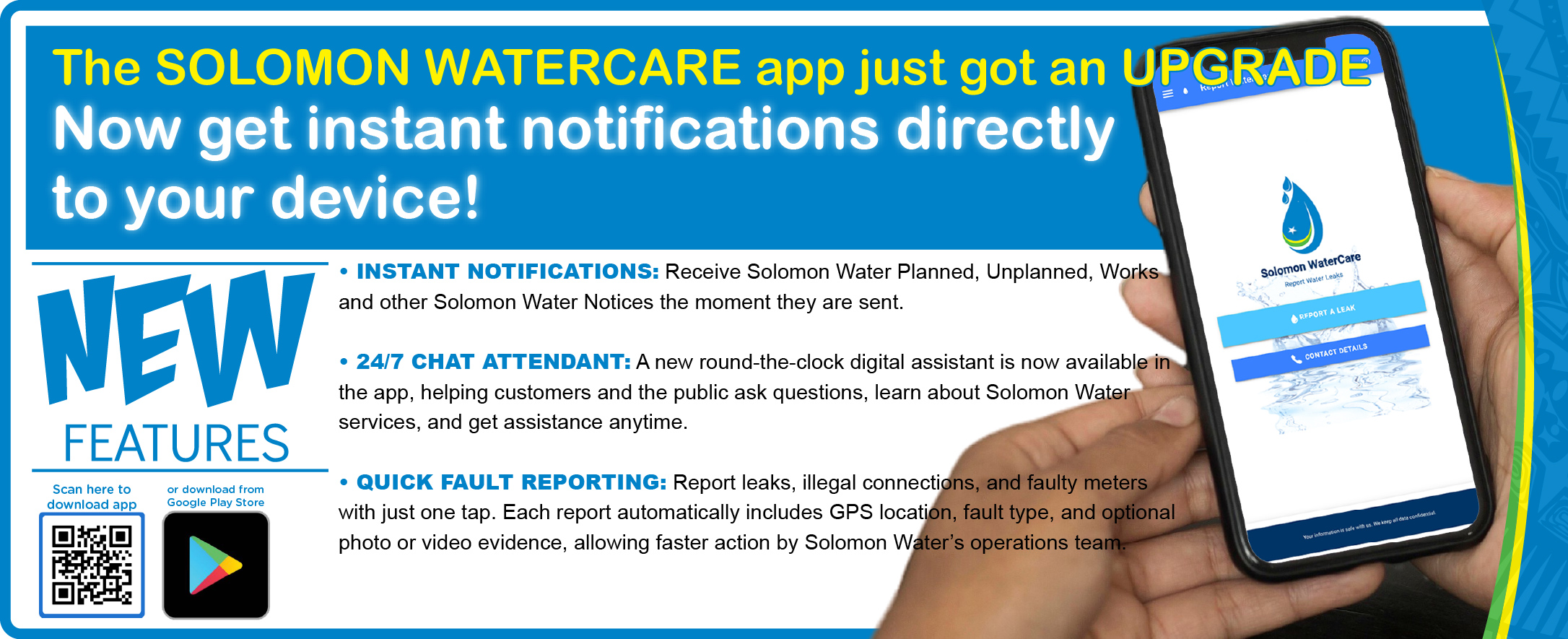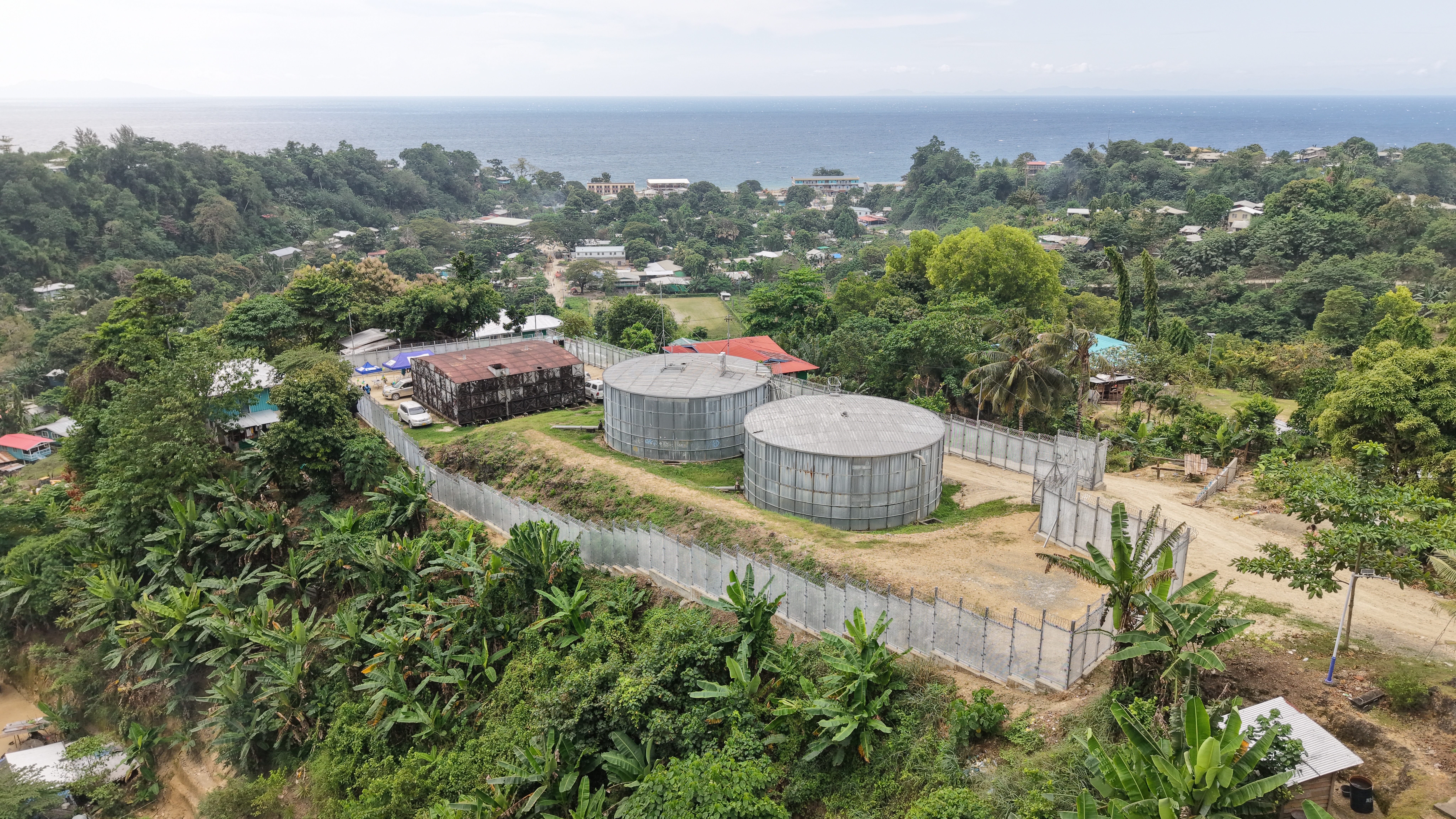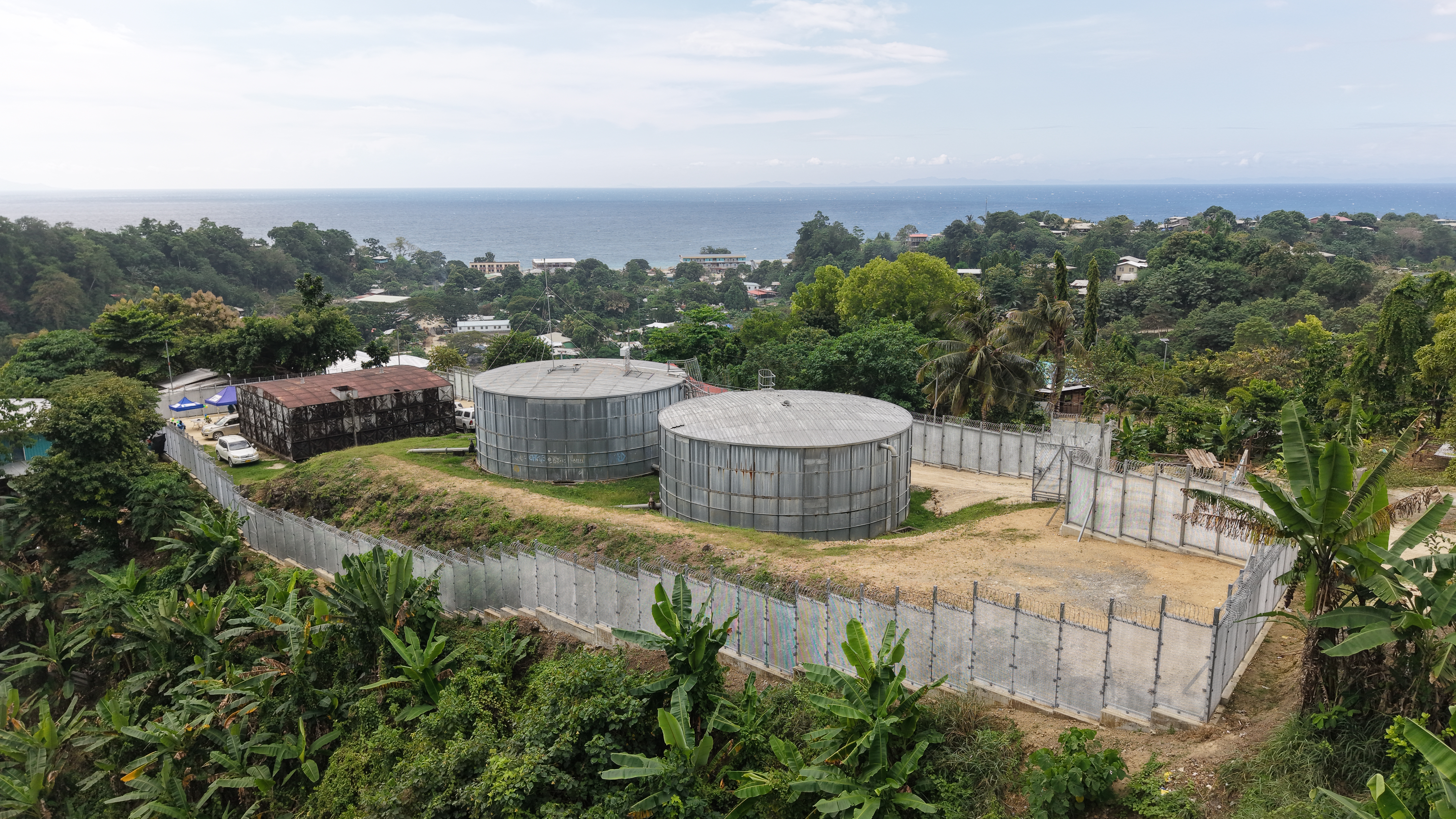Solomon Water App Now Sends Instant Notifications Straight to Customers
Solomon Islands Water Authority (Solomon Water) is pleased to announce a major upgrade to the Solomon WaterCare mobile app (Version 2.2.3), now available for Android users.
The main highlight of this upgrade is the introduction of instant push notifications, which allows customers to receive real-time alerts directly on their phones for:
- Planned and unplanned water outages
- Water restoration updates
- Works notices and public announcements
- Tenders, press releases, and other Solomon Water activities
With this new feature, customers no longer need to search for outage information — notifications will find them, ensuring faster and more reliable updates whenever there is an issue or announcement.
“This is a big step forward in improving how we communicate with our customers,” said Alice Aote’e, IT Coordinator for Solomon Water. “Push notifications mean customers are instantly updated about anything affecting their water supply. It’s faster, simpler, and far more reliable than waiting for posts or word of mouth.”
What’s New in Version 2.2.3
- Instant Notifications: Receive Solomon Water updates the moment they happen.
- 24/7 Chat Attendant: A new round-the-clock digital assistant is now available in the app, helping customers and the public ask questions, learn about Solomon Water services, and get assistance anytime.
- Quick Fault Reporting: Report leaks, illegal connections, and faulty meters with just one tap. Each report automatically includes GPS location, fault type, and optional photo or video evidence, allowing faster action by Solomon Water’s operations team.
- Customer Account Access – Coming Soon: This feature, which will allow customers to view their bills, arrears, and account details directly within the app, is not yet available in this release. It will be introduced in the next version, which is already under final development.
For now, customers can use the updated app to report faults, receive outage updates, and get push notifications directly from Solomon Water.
How to Get the Updated App
All users who update to the latest version of the Solomon WaterCare app will automatically start receiving push notifications — no additional registration required.
The upgraded app is now live on the Google Play Store:
- New users: Open Google Play Store, search for “Solomon WaterCare”, and tap Install.
- Existing users: Open Google Play Store, search for “Solomon WaterCare”, and tap Update. The app will automatically update to Version 2.2.3.
The iPhone version (iOS) has been completed and is pending publication on the Apple App Store. Solomon Water will notify customers once it becomes available in the coming days.
Solomon Water remains committed to using technology to make its services more accessible, transparent, and customer-focused.
Customers are encouraged to download or update the Solomon WaterCare App (Version 2.2.3) today to start receiving instant notifications and enjoy the new 24/7 chat and improved features.
For more information about the Solomon WaterCare App, please visit any Solomon Water office, call 44700, or email This email address is being protected from spambots. You need JavaScript enabled to view it..
//









